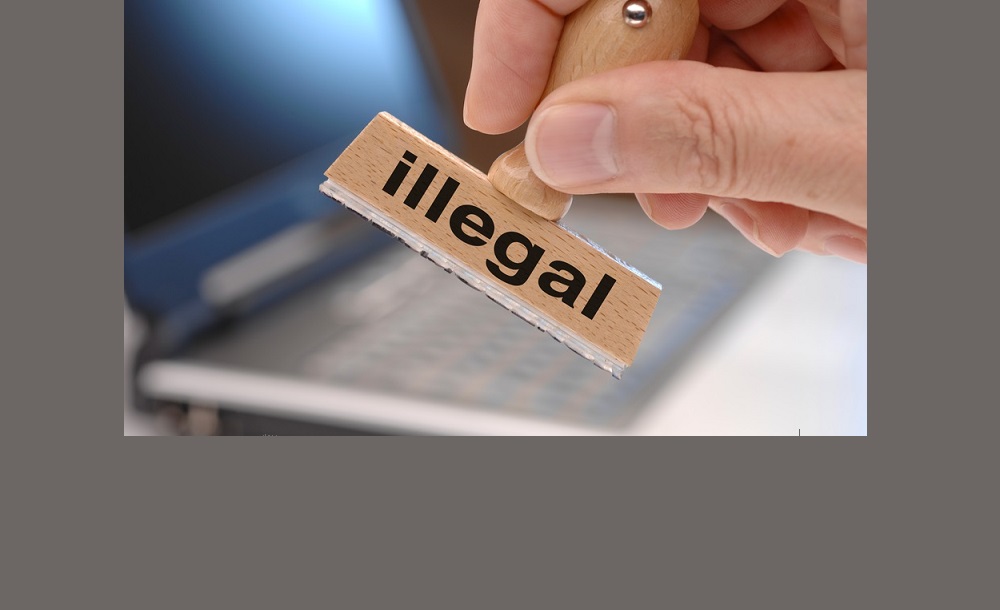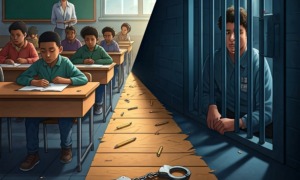The cages are nothing new to black parents. Their kids are locked up at a rate as high as 30 times more than white children even though black and white kids commit most offenses at similar rates.
But their kids aren’t called kids. Their kids are superpredators or juveniles or gang bangers or thugs. Their kids are threatening when walking with a bag of Skittles or smoking weed or getting into a fight or going to a diner after the prom or driving around with friends or going to a pool party or playing in the park — things that all kids do. But when their kids do it, it’s criminal. It’s dangerous. It’s met with a 911 call, police, handcuffs, bullets, surveillance or prison cells. Separation.
And so their kids know the horrors of being caged. Know the horrors of being torn from their parents and sisters. And their mothers and fathers know what it’s like to have their child — who they still kiss goodnight, who they still have to remind to do their homework, who they still steal a look at before going to bed — caged.

Elizabeth Weill-Greenberg
The weapon of incarceration that terrorizes black families has been turned against people from South and Central America who are fleeing unspeakable violence. Racism — the lifeblood of the Trump presidency — fuels and sustains both systems.
President Donald Trump and Attorney General Jeff Sessions began their campaign against immigrants with the dog whistle of MS-13, in language reminiscent of the racist vitriol directed at black children, including by Trump when he called for the execution of the Central Park Five in 1989. Animals, bad hombres. And then, with a pivot and a wink, all people crossing the border were deemed criminals.
Ethnic exclusion by autocratic state
There is no more virulent weapon the United States possesses than its incarceration system and no more damning label than criminal. This weapon is being used to carry out a system of ethnic exclusion, to terrify anyone who considers coming to the United States from South and Central America. For if you do, the system warns, know what awaits you.
It is a system that so dehumanizes those carrying out these policies that they mock the cries of children who have had their parents taken from them. It is a system steeped in a cruelty that knows no bounds. It is a system that anyone who has been labelled a criminal or works in the criminal legal system knows all too well. They see the wounds and say, “Yes, I have those too. Here and here and here.”
It is a system that rounds up and deports long-term residents, that snatches up parents on their way to work or after dropping their kids at school, that lurks at courthouses, that combs through old citizenship applications, that ends DACA, that strips asylum protections and due process from victims of domestic and gang violence.
The literal and metaphorical knock on the door is a tool of an autocratic state. Wherever you may be, know the state can take your freedom or your life, steal you away from all you know and love, strip you of your identity as a child or parent or sister or brother. It is a power and a terror far too many live with every day. And it is a terror that did not begin with Trump and Sessions but it is one we must work, in solidarity with all its victims, to ensure ends now.
Elizabeth Weill-Greenberg is the communications director for the New Jersey Institute for Social Justice and the author of the documentary play, “Life, Death, Life Again: Children Sentenced to Die in Prison,” which is coming to Philadelphia in the fall. She teaches a course on wrongful convictions at Rutgers University and was a case analyst at the Innocence Project from 2007-15.
































